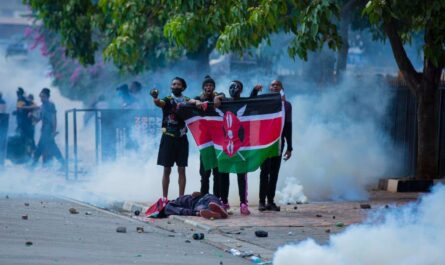According to the 2019 census, 1.3 million Kenyans hold a university degree against a population of 47 million then. Factoring in fake degree certificates, very few Kenyans have a first degree. Of these degree holders, fewer graduates have theology degrees. Theology is often not the first degree of choice among high school students in Kenya. Literacy levels, however, are high. As of the 2022 census, literacy levels in Kenya stood at 83%. This means that about 45 million Kenyans, or 83 people for every 100, can read and write.
The Government of Kenya made recommendations for pastors to have theological training to practice. It appears Kenya wants all pastors to be among the elite two percent of the country who are degree holders. Some pastors who already had these degrees immediately began demonstrating elitist behaviour with this requirement announcement by showing a disdain for pastors who were unlike them.In the past month, I have come across condescending comments online from a pastor to another group of pastors because of this measure of intelligence. To them, their degrees saved them from “sucking up to the government” and being “over-spiritual.”
But does God make us smart so that we cultivate hubris? Of course not. God hates pride. He opposes the proud. He expects us to subject our cognitive abilities to his will.
Pastors who desire special treatment because they are more learned than others or talk down to others, need to reacquaint themselves with the book of James. As the statistics show, a vast majority of Kenyans can read and write. Non-theology degree holder pastors who can read the Bible and who exhibit spiritual maturity and Holy Spirit gifting are more than able to influence society with their preaching. They deserve to be heard. It is unfair to deny them the opportunity to preach to the masses who are like them.
One of Jesus’ clarion calls was good news to the poor. He expected his followers to do the same. Many elite pastors find it difficult to communicate with the poor or less privileged in society. The masses in Kenya cannot relate to the elites’ travels, budgets, and choice of entertainment. These preachers, however, can still reach them by working with godly non-seminary trained pastors. The fact is, you’d rather have a godly non-degree holding pastor than an elitist pastor with excess pride.
Silvanus and Baruch let the apostle and prophet stand on their intellectual shoulders to write excellent Greek and Hebrew messages in the Bible. Silvanus, also called Silas, was Peter’s stenographer. From the comment in Acts 4:13, Peter was not well read. The masses knew him as an unschooled Galilean fisherman. But the Spirit of God was upon him. And Peter had been with Jesus for years. He chose to obey God rather than men when it came to preaching (Acts 5:29). Apostle Peter is a rep of all preachers in Kenya that the government wants to have theological degrees before they can preach. Silvanus did not seclude himself from Peter because he was well read. He titled the epistle after Peter and addressed it to believers in Pontus, Galatia, Cappadocia, Asia, and Bithynia, all Roman provinces in modern-day Turkiye. The initial audience of the letter were mostly Gentiles pre-conversion as we see in the language used in 1 Peter 1:14, 2:9-10, 4:3-4. These saints knew Peter’s education level and Jewish background.
As a way of connecting with the audience, Peter used his Greek and Aramaic name Cephas in the letter and not his Jewish name Simon. Scholars note that 1 Peter’s command of the Greek language has a style that is even smoother than Paul’s, who had years of scholarship training under Gamaliel. First Peter 5:12 credits Silvanus with writing the letter on behalf of Peter.
Silvanus was more than a secretary or stenographer for Peter’s words. He did the work of polishing the language of the letter. He delivered God’s message of hope well to the believers in Asia Minor despite the persecution they faced. It is also believed this is the same Silvanus who was with Paul in his missionary trips. If so, he was truly a distinguished member of the apostolic church at Jerusalem. Silvanus was sent with Paul to communicate the decision of the first church conference held in Jerusalem to the church in Antioch, where followers of Jesus were first called Christians (Acts 15:22,27,32). Silvanus, we are told, was arrested with Paul in Philippi after a riot broke out, and there they sang hymns through the night until God sent an earthquake to break the prison gates (Acts 16). He was with Paul in Thessalonica (Acts 17:4) again causing riots and was sent away with him to Berea. We see him also delivering the letters of 1 and 2 Thessalonians from Paul. Although gifted, he was humble.
Baruch did the same for Jeremiah. He was a scribe and a friend to Jeremiah (Jeremiah 36:26,32). Baruch wrote the prophecies of Jeremiah at the prophet’s dictation. He made sure everything was correct. When the king tore and burnt the scriptures when they were read to him, Baruch made a copy of what Jeremiah said.
Today we can enjoy God’s word because of these two people: Silvanus and Baruch. They are a model for the believers and church leaders in Kenya to emulate.
Here are some practical ways of helping pastors or believers serving in underprivileged circumstances:
*Understand that God is sovereign over all (1 Samuel 2:7). He is God over the less privileged and the bourgeois. Despising those less fortunate than you is despising the image of God
*Be a father to the poor. Pay tuition for the orphan and those from struggling homes, including seminary fees for the pastors who cannot afford (Job 29:16)
*Affirm godliness. The goal of Christian living is godliness, not accolades. If a mature believer who fits the biblical description of a church leader is leading a church, don’t look down upon them for they don’t have a seminary certificate (Psalm 37:16)
*Intentionally make friends with people less privileged than you because the rich usually have many “friends” (Proverbs 14:20).
*Remember if you shut your ears to the cries of the poor, you will be ignored in your time of need (Proverbs 21:13).
*You grow closer to God when you give justice to the underprivileged (Jeremiah 22:16).
*Giving to the poor is actually loaning to God, and he will repay you (Proverbs 19:17)
*Train the poor on their rights. Don’t exploit them. (Proverbs 29:7).
*Speak the truth to the powerful. Tell them to stop oppressing the poor (Zechariah 7:10).
*Understand that diversity hires aren’t always the solution. Don’t slant your testimony in favour of the poor simply because they are poor for them to get a deal (Exodus 23:3).
*Don’t twist justice against someone simply because they are poor (Exodus 23:6).
These suggestions are not exhaustive. We shall do well to remember that God cares for the poor (Psalm 69:33) and the underprivileged. Unless the privileged actively intervene in the lives of the majority of Kenyans, the next generations will have more challenges to make a living.



